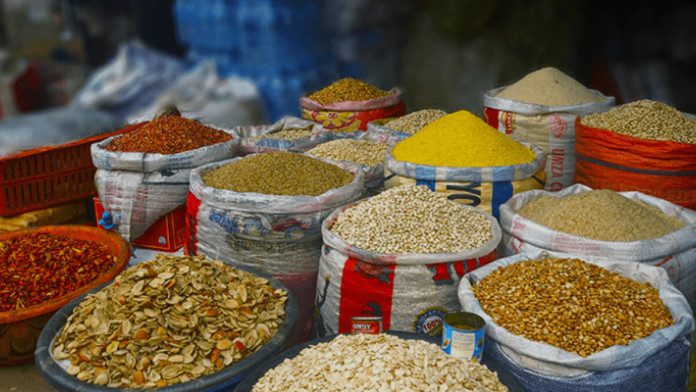News in Brief:
– Soaring food prices in Nigeria are causing hardship for consumers, with staples like rice and garri experiencing significant year-on-year increases.
– The government acknowledges the difficulty but offers limited solutions, leaving analysts to speculate about when economic reforms might bring relief.
There is as yet no relief for Nigerian food consumers as popular staples like rice and garri continue their relentless upward climb in prices across major Nigerian markets.
According to information from the National Bureau of Statistics (NBS) in their Selected Food Price Watch report for April 2024, local rice leads the pack in a significant surge in prices, followed closely by white garri, tomatoes, brown beans, and yams.
The price of local rice increased by a staggering 155.93%, on a year-on-year basis, and a 3.47% increase between March and April 2024. As for white garri, it is 13.59% more expensive between both months, with prices exceeding ₦850 per kilogram (kg). Other Staples like tomatoes, brown beans, and yams also witnessed significant price hikes.
Impact of prices on consumers
Effectively, this means that many consumers will have to continue to deal with the situation as no immediate solution appears to be forthcoming.

This translates to smaller portions of eba in many Nigerian garri lovers’ meals, or having to spend significantly more to satisfy their craving for the popular milled-and-dried white cassava grits. Also, beans which is hitherto widely consumed may witness a decline in purchase and consumption.
It is noteworthy that this formerly cheap and inexpensive food was the number one protein source for most low income earning Nigerian homesteads and students in tertiary institutions.
Meantime, the federal government, through the Minister of Budget and National Planning, Atiku Bagudu, acknowledged the hardship caused by rising food prices. He apologised for the situation but framed it as ‘pains accompanying an overdue economic restructuring’ under the current administration.
Interestingly, both Mr. Bagudu and the Secretary to the Government of the Federation, George Akume, defended the administration’s policies in separate speeches at the same event.
However, they failed to provide a concrete timeline for when these economic reforms would translate into relief for the masses. This lack of clarity has led analysts to speculate that consumers may continue to face these challenges for an indefinite period.



